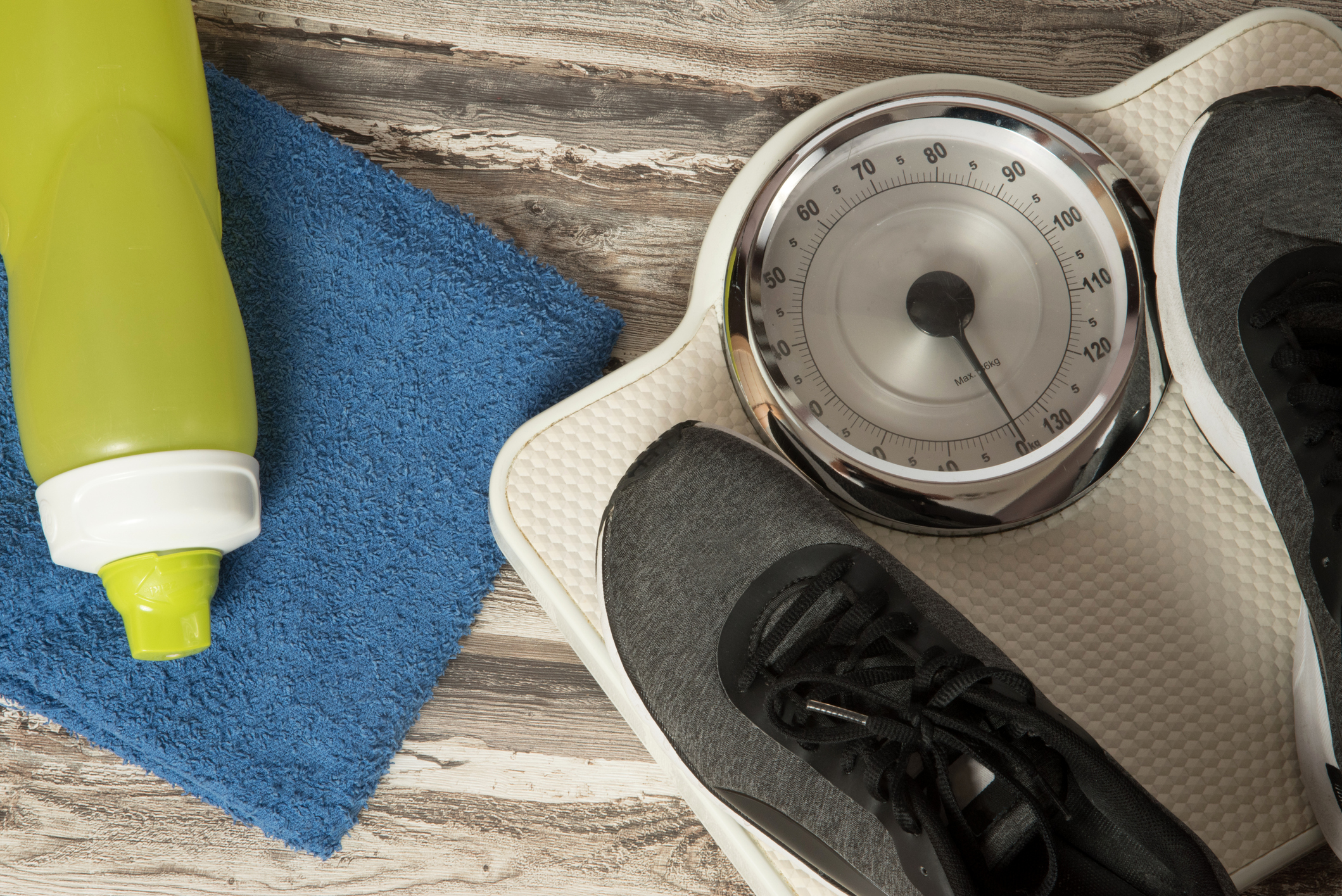Get Easy Health Digest™ in your inbox and don’t miss a thing when you subscribe today. Plus, get the free bonus report, Mother Nature’s Tips, Tricks and Remedies for Cholesterol, Blood Pressure & Blood Sugar as my way of saying welcome to the community!
The food that won’t let you ‘outrun’ obesity

Diet and exercise (or lack of) are two major factors that contribute to obesity, right?
Most people know that when they’ve been eating poorly, there’s a good chance they’ll put on some weight.
No big deal. To outrun the effects of a bad diet and lose those extra pounds, just ramp up the exercise.
Burn those extra calories, and you can avoid gaining or take off any extra weight that may have come from your “cheat days,” as we used to call them.
But in reality, that turns out to be almost impossible. Here’s the reason for that..
Lack of exercise is not the cause of obesity
Over the last century, obesity has become as common as the common cold and lots of research has looked in potential causes. For decades it’s centered around taking calories in and the expenditure of energy to burn those calories.
So it makes sense that physicians and fitness experts alike blame weight gain and obesity on our increasingly sedentary lifestyles. But that’s just not the case…
An international team of researchers compared the daily amount of calories burned by people from 34 different countries and cultures worldwide, including hunter-gatherers and farming populations with low obesity rates, as well as people in sedentary jobs in places like Europe and the U.S., where obesity is widespread.
Dr. Herman Pontzer, a professor of evolutionary biology and global health at Duke University, led the research. And he and his team have debunked the idea that living a sedentary lifestyle leads to obesity.
Participants in the worldwide study included more than 4,200 adult men and women who drank a special water containing isotopes. These isotopes, tracked in participants’ urine, allowed the scientists to get an exact read on how much energy the subjects used.
They measured energy expenditures not just from movement and exercise but from vital processes and functions the body performs — including the energy it takes to keep the heart beating or the nervous system functioning — just to stay alive.
Surprisingly, they found that people from populations with high obesity rates burned only slightly less energy than those from populations without an obesity problem.
Dr. Pontzer says that this fits with what we already know about how the body burns calories.
“Surprisingly, what we find is that actually, the total calories burned per day is really similar across these populations, even though the lifestyle and the activity levels are really different,” he says.
In other words, someone foraging for berries all day may burn the same amount of calories as someone at a desk all day. But why?
“So if we burn more of our energy every day on physical activity, on exercise, after a while our bodies will adjust and spend less energy on the other tasks that we sort of don’t notice going on in the background.”
This finding is strong evidence that obesity doesn’t occur from lack of physical activity. It’s because of food… one kind in particular.
Ultra-processed foods are the culprit
“It’s 100% diet,” says Dr. Dariush Mozaffarian, director of the Food is Medicine Institute at the Friedman School of Nutrition Science and Policy at Tufts University. “And I think then the question is, what is it about the diet?”
Dr. Mozaffarian was not involved in the research, but has shared insights pointing out that the modern diet has become dominated by ultra-processed foods (UPF), and that these are the drivers of weight gain.
“For decades, we’ve been telling Americans that you’re lazy, it’s your fault, you’re not moving enough, you’re eating too much,” he says. “And I think what this study shows is that there’s a really complicated biology happening and that our food is driving this.”
The researchers of the study listed several ways, in addition to long shelf lives and increased availability, that UPF contributes to obesity, including:
- The hyperpalatability, energy density, nutrient composition and appearance of UPF might disrupt satiety signaling and encourage overconsumption. (Remember the adage, “you can eat just one”? UPF, from snacks to quick breakfast foods, to frozen pizzas and more, are designed to hook you and make you crave more.)
- Processing has also been shown to increase the percentage of calories consumed that are absorbed into the body rather than excreted. (UPF has low fiber content, is absorbed by the body quickly and has additives that potentially disrupt normal digestive processes.)
- They also found data that supports the obesogenic effects of UPF. (Obesogens are chemicals, often involved in ultra-processing and packaging, that can disrupt the endocrine system and lead to weight gain and obesity.)
Avoiding obesity isn’t the only reason to avoid UPF…
The more UPF in your diet, the higher your risk of dementia, colorectal cancer, and at least 30 other health conditions, ranging from diabetes to Crohn’s disease to asthma.
Make every effort to stick to a healthy, whole foods diet that includes plenty of fresh fruits and vegetables, and you’re well on your way to keeping control of your weight.
Of course, there are other good reasons to get regular exercise — but if losing weight is among your reasons, you’ve got to examine your diet and move away from UPF.
Editor’s note: Did you know that when you take your body from acid to alkaline you can boost your energy, lose weight, soothe digestion, avoid illness and achieve wellness? Click here to discover The Alkaline Secret to Ultimate Vitality and revive your life today!
Sources:
You can’t outrun a bad diet. Food — not lack of exercise — fuels obesity, study finds — NPR
Energy expenditure and obesity across the economic spectrum — Proceedings of the National Academy of Sciences (PNAS)














